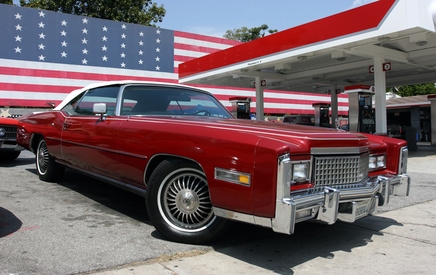
Unlike new car sales, used car sales in Michigan have far fewer protections and restrictions governing the transaction. While private parties can sell their vehicles to whom they choose, buyers should be aware that private sales are conducted largely at the discretion of the parties involved. Though parties can agree to whatever terms they choose, the law imposes minimal duties on each party in private car sale transactions.
As with any other vehicles, used-car sellers must be able to transfer title of the vehicle to the purchaser. Any liens, such as those held by a bank or other lender, must be released by the lien holder before title can be transferred. Though it's not required, the Michigan Department of State recommends that both the buyer and seller go to the secretary of state's office to complete the title transfer. In any event, title must be transferred within 15 days from the date of purchase to avoid any late fees. The buyer must pay any sales taxes when the new title is applied for, or provide proof that the sales taxes have been paid.
Once a car is sold between parties in Michigan, the seller is protected from any damages caused by the buyer as long as the buyer maintains proof of sale. For example, if a buyer sells a car to to a person who then immediately gets into a car wreck and causes damage to a third party, the buyer can protect himself from any claim the third party has by maintaining proper proof of sale. Even if the seller still has car insurance that applies to the sold car, he can avoid liability by proving the sale was completed.
Unlike cars sold by dealers, private-car sales in Michigan are considered "as-is" sales, meaning the seller provides no warranties to the buyer. For example, the so-called "lemon law" in Michigan protects new-car buyers from cars that have ongoing or recurring defects. While this law protects buyers from problematic vehicles, it does not apply to used-car sales from private sellers. Michigan Compiled Laws section 257.1401 states that only new cars with defects or conditions that impair driving are subject to the protection of the state's lemon law.